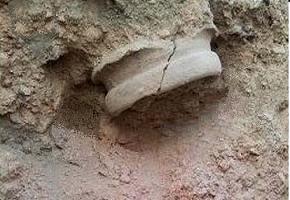 |
| Westboro Baptist pickets |
At the recent inauguration, a few protestors carried signs
that read "Antichrist Obama", "Fags Are Worthy Of Death"
and "God H8s Fags," and stood on American and rainbow flags,
according to a Washington Post report.
Parishioners in that godly establishment, who also picketed
the burial ceremonies of the children murdered in Sandy Hook, Connecticut, have
been outraged by Obama’s support of the gay community and, of course, his
mention of gay rights in his inaugural address.
As a result, they evoked a hoary image of the antichrist
from the more-vicious side of Christianity’s past.
 |
| Image of the antichrist |
The antichrist idea arose from Bible. The word “antichrist” only appears in John I
and II in the biblical epistles, but the concept is educed from other texts to
refer to an evil creature who will battle with God. The good side wins, initiating a new era of
people and love. Muslims also have an
antichrist who will tussle with Jesus at the end of the world.
Basically, this is no different that Superman vs. Lex Luthor
or Spiderman vs. the Green Goblin. Great
heroes need equally great opposition.
Otherwise, victory comes too easily.
Professional wrestling follows the same credo: to build up the babyfaces, the heels have to
been equally powerful or worse. Both
religion and professional wrestling share that trait and create myths at the
same rate.
That’s never truer than with the antichrist. That mythological creature has moved far
beyond the devil.
Since Jesus was seen as god incarnate with human
characteristics, the antichrist quickly morphed into a human with downright vicious
qualities. It was just a question of
identifying him.
Christians have had a field day with that opportunity. Most everyone of any prominence has been
labeled the antichrist in the past 20 centuries, including American presidents,
popes, other world leaders and more.
Amazingly, I was also called the antichrist during a call-in radio show
about religious history . In that case,
the label is factually correct – to a point – since I reject the idea of a
messiah. On the other hand, I don’t have
any power or ability to confront a deity.
 |
| Mussolini |
To “identify” that person, Christians have resorted to
mathematical gymnastics. For example,
Benito Mussolini, the Fascist dictator of Italy from the 1920s through the
1940s, earned that label because his title, “Duce,” can be written in Greek and
assigned numbers for each letter. The
result is 666, the mark of the devil, according to the biblical Book of
Revelation.
Numerology also turned the pope’s title “Vicar of Christ”
into 666, too. That’s true for President
Franklin Roosevelt’s name as well as Bill Clinton’s. Bizarre religious guru Aleister Crowley took
the number “666” as a nickname and was also called “the Beast.” When John F. Kennedy won the 1960
Democratic Party presidential nomination in 1960, he received 666 votes. The coincidence was enough for some people to
label him the antichrist.
Others noted the Ronald Wilson Reagan has six letters in
each of his name. When his term ended,
he and Nancy moved to 666 St. Cloud Road.
What more proof did anyone need of his antichrist status?
 |
| Stalin |
Bill Gates, founder of Microsoft, earned the distinction
simply because he’s so wealthy. Mikhail
Gorbachev, head of the atheistic Soviet Union, was called the antichrist before
he dismantled the country. The problem
was that he wanted peace, and to antichrist fanatics, the peace symbol is
really an “inverted, broken Christian cross” meant to signal the end of the
religion. Gorbachev’s birthmark on his forehead completed the picture.
Of course, there were the old standbys German Nazi leader
Adolf Hitler, Communist head Joseph Stalin and Spanish dictator Francisco
Franco. Obama? He joined the list because the day after his
election, the daily pick-three lottery number in his home state of Illinois was
6-6-6.
See? The proof is so obvious.
Not that the godly members of the Westboro Baptist Church
need such evidence. Obama’s fair-minded
effort to have all Americans treated equally is enough to outrage them. In their fantasy world, everyone else is the
antichrist.
Long-time
religious historian Bill Lazarus regularly writes about religion and religious
history. He also speaks at various
religious organizations throughout Florida.
You can reach him at www.williamplazarus.net. He is the author of the famed Unauthorized
Biography of Nostradamus; The Last Testament of Simon Peter; The Gospel Truth: Where Did the Gospel
Writers Get Their Information; Noel:
The Lore and Tradition of Christmas Carols; and Dummies Guide to Comparative
Religion. His books are available on Amazon.com,
Kindle, bookstores and via various publishers.
He can also be followed on Twitter.
You
can enroll in his on-line class, Comparative Religion for Dummies, at
http://www.udemy.com/comparative-religion-for-dummies/?promote=1








